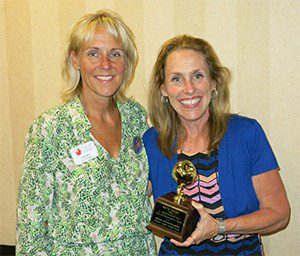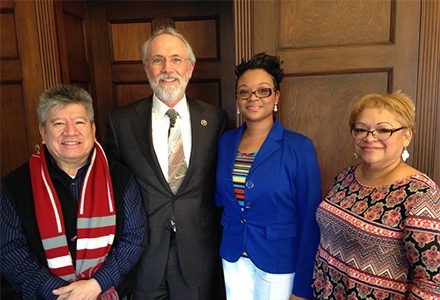LEV Board votes to oppose I-1366: Another mean-spirited distraction from Tim Eyman
The League of Education Voters (LEV) Board voted to oppose Initiative 1366 on June 23, 2015. I-1366 is sponsored by Tim Eyman and Jack and Mike Fagan and qualified for the ballot today.
The initiative would cut Washington state’s sales tax by one percent, resulting in the loss of approximately one billion dollars per year for the state—unless the Washington State Legislature approves a constitutional amendment requiring a two-thirds vote to raise revenue by April 2016. With about sixty-six cents of every sales tax dollar going toward public education, the passage of I-1366 would be disastrous for Washington’s students.
Eyman’s tactics in this initiative are nothing new; he has attempted time and time again to pass initiatives (I-960, I-1053, I-1185) requiring a two-thirds vote to raise or recover revenue. Thanks to the League of Education Voters v. State of Washington court case, the Washington State Supreme Court ruled I-1053 unconstitutional in 2013. Given the outcome of that case, Eyman is now resorting to extortion in an effort to force the Legislature to pass a two-thirds constitutional amendment.
Cutting the sales tax by more than $2 billion per biennium would necessitate devastating cuts to our schools, in violation of the Supreme Court’s McCleary orders and in violation of Article IX of the Washington State Constitution, which instructs the state to make “ample provision” for the education of Washington students.
Our Legislature recently passed one of the best budgets for education in our state’s history. Now is not the time to backtrack on the state’s progress toward an ample, equitable, and stable education system.
Learn more about our partners in opposition of I-1366 at the No on Tim Eyman’s I-1366 website.
 One such school district is West Valley, in the Yakima area. West Valley began requiring 24 credits for high school graduation beginning in the 2001–2002 school year, when they increased their English language and social studies requirements. The second phase of the transition to a College and Career Ready Diploma happened in the 2006–2007 school year, when the district increased their math and science requirements. In 2013, more than 80 percent of their seniors graduated from high school, and of those who graduated, 67 percent continued onto college.
One such school district is West Valley, in the Yakima area. West Valley began requiring 24 credits for high school graduation beginning in the 2001–2002 school year, when they increased their English language and social studies requirements. The second phase of the transition to a College and Career Ready Diploma happened in the 2006–2007 school year, when the district increased their math and science requirements. In 2013, more than 80 percent of their seniors graduated from high school, and of those who graduated, 67 percent continued onto college.  The League of Education Voters has long argued that a child’s education should be a continuum with seamless transitions from early learning through higher education. We have worked with partners around the state in pursuit of that vision, including with the
The League of Education Voters has long argued that a child’s education should be a continuum with seamless transitions from early learning through higher education. We have worked with partners around the state in pursuit of that vision, including with the 
 The work that we do to improve public education is only possible thanks to the support of our activists and advocates—the parents, community members, students, and teachers who stand up and speak up. In order to recognize the difficult work that so many of our supporters do on behalf of all Washington students, the League of Education Voters began spotlighting the work of our “activists of the month” in late 2013.
The work that we do to improve public education is only possible thanks to the support of our activists and advocates—the parents, community members, students, and teachers who stand up and speak up. In order to recognize the difficult work that so many of our supporters do on behalf of all Washington students, the League of Education Voters began spotlighting the work of our “activists of the month” in late 2013.
 Dakoda Foxx’s advocacy work began close to home in 2011, after her daughter was suspended for 100 days. Dakoda knew this “wasn’t right,” so she went to
Dakoda Foxx’s advocacy work began close to home in 2011, after her daughter was suspended for 100 days. Dakoda knew this “wasn’t right,” so she went to